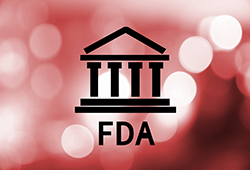 On February 21, the FDA published a final rule in the Federal Register that implemented a requirement of the BPCIA, transitioning insulin, and some other products such as human growth hormone (somatropin), pancrelipase, chorionic gonadotropin, follitropinalfa, and menotropins, from regulation as small molecule drugs to biologics. With respect to insulin, the FDA’s response to comment 4 notes that “instead of describing the two subunits of the insulin protein as polypeptides or polypeptide chains like the comment, we describe them as amino acid chains. It therefore follows that insulin clearly is a ‘protein’ as interpreted in the final rule, because the total number of amino acids exceeds 40 … according to the interpretation we are finalizing, insulin is a protein because it is an alpha amino acid polymer with a specific, defined sequence that is greater than 40 amino acids in size.”
On February 21, the FDA published a final rule in the Federal Register that implemented a requirement of the BPCIA, transitioning insulin, and some other products such as human growth hormone (somatropin), pancrelipase, chorionic gonadotropin, follitropinalfa, and menotropins, from regulation as small molecule drugs to biologics. With respect to insulin, the FDA’s response to comment 4 notes that “instead of describing the two subunits of the insulin protein as polypeptides or polypeptide chains like the comment, we describe them as amino acid chains. It therefore follows that insulin clearly is a ‘protein’ as interpreted in the final rule, because the total number of amino acids exceeds 40 … according to the interpretation we are finalizing, insulin is a protein because it is an alpha amino acid polymer with a specific, defined sequence that is greater than 40 amino acids in size.”
The FDA also published a FAQ that gives information to health care providers about the change to these products. The FDA advised providers to inform patients that no change to the biological products themselves would result because of these regulatory changes, and that these products should be administered and taken in the same way as before the transition.
The FDA will begin accepting applications for biosimilars that reference transition products, including insulin, on March 23, 2020.

